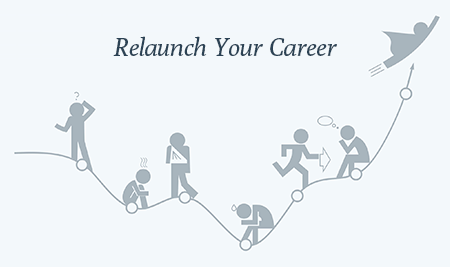When I used to work in the corporate world as a brand marketer, I operated in a resource-rich environment with access to big budgets and plenty of experts to get things done. When it came to creating marketing campaigns, we had the luxury of bringing on external agencies eager to work with big brands. When it came to hiring people, we had clear processes in place to vet the abundance of candidates applying to roles.
So after starting my own business a few years ago, I experienced a bit of a rude awakening when trying to hire the right people to help me build my business. Gone were the days when I could simply turn to HR or one of my trusted external recruitment agencies to help me find and vet potential candidates to fill a role. I no longer had the budgets, resource, or frankly, the corporate brand name recognition to lure talented candidates.
As a small business owner with more limited resources, I instead turned toward online freelance marketplaces like Upwork, 99Designs and PeoplePerHour to find freelancers to help me handle the various aspects of my business. On these hiring platforms, I’ve found everyone from a qualified attorney to file my company trademark to a musician to compose my podcast’s theme song to a designer to create my brand guidelines to a web development team to build my website.
It turns out you can find plenty of talented professionals online to help you grow your small business. It also turns out you can end up working with unqualified professionals who will make your life as a business owner much more difficult. I’ve been fortunate enough to find plenty of the former, but unfortunately, I’ve also had my fair share of the latter. I hired an animator who misrepresented her skills. I hired a podcast production consultant who claimed to be a technical expert but actually knew very little. And I hired multiple web developers who overpromised but underdelivered. All of these hiring mistakes were costly, time-consuming, and incredibly frustrating.
I’ve recently had a much better track record of finding great freelancers online after learning from my past hiring mistakes. Here are six red flags I now watch for that make me rule a freelance candidate out.
1. Follows Up A Bit Too Much
Photo: rawpixel on Unsplash
Whenever I post a job on a freelance platform, it’s not unusual to receive a large number of pitches from freelancers eager to earn my business. In my project briefs, I always explain my hiring processes and the time I plan to take to vet proposals before making my hiring decision.
While I always appreciate some degree of follow-up during the initial fee scoping phase of projects, someone continually nagging me about whether I’ve reviewed their proposal can signal impatience and a disregard for my ways of working.
While enthusiasm is nice, beware of a freelancer who seems a bit too eager to work with you. It might signal desperation for business, which is generally not a good sign.
2. Suddenly Raises Fees After You Award Project To Them
Photo: rawpixel on Unsplash
I recently had a situation where I was looking to hire a web team to build some new functionality into my website. One particular team seemed very promising, and their proposed fees seemed reasonable. However, once I said I wanted to hire them, they suddenly raised their fees “upon further review of my site.” When I repeatedly asked them to explain their fees increase, they were only able to offer a vague, convoluted explanation.
Fee proposals can certainly change after someone’s had a chance to delve deeper into your project requirements. However, if your project brief is clear, there shouldn’t be a tremendous amount of variance without clear justification.
I recommend working with freelancers who can provide precise fee estimates which are only possible if they invest the time to do their due diligence and fully understand your project requirements from the very start.
3. Ignores Feedback

Photo: Kirill Zakharov
I was once looking for a designer to help me design my Career Relaunch podcast’s cover artwork. I very quickly realized that each designer tends to have a specific vision of how to execute a design. I also quickly realized some designers are more open to taking on feedback than others.
When you select a specific freelancer, you’re hiring them for their expertise and ability to do things you can’t do yourself. At the same time, as the client, you should be able to share feedback and probe until you feel comfortable with the final execution. If you get the sense that the freelancer is pushing back or unwilling to take on feedback about their approach, that could signal a very rigid, inflexible design process moving forward.
The best freelancers I’ve worked with have come in with a clear vision of how they’ll tackle a project based on their expertise, but have also been open to feedback, which can often lead to a better end result.
4. Late To Initial Meetings

Photo: Stainslaw Gregor
When I’m vetting and selecting prospective freelancers to work with, I insist on having an initial call with them so I can explain the project requirements in detail, learn more about their skills, and also get a sense of their work style. For example, when I started my business, I wanted to hire a trademark attorney to help me apply for and secure a trademark on my company name, so I posted an ad on Upwork, where I’d had luck finding other solid freelancers. One attorney was consistently late to these initial screening calls, but he had a strong track record of successful filings, offered competitive fees, and came from a reputable law firm.
I ended up ignoring his tardiness and hiring him. Big mistake.
After awarding the work to him, he became very passive in his work approach, and I had to constantly follow up with him to ensure he was meeting our filing deadlines, which became a big headache.
Freelancers are often on their best behavior when trying to win your business. Once you award the business to them, don’t be surprised if tardiness ends up resulting in missed deadlines, delays, and elongated timelines.
5. Unable Or Unwilling To Share Examples Of Related Work

Photo: Masaaki Komori
When I launched my podcast, I wanted to find an animator to create a podcast trailer featuring clips from the first few episodes. I turned to PeoplePerHour and received over 30 proposals. I really liked one team’s overall vision and examples clips of other animators’ work that conveyed an art style that really resonated with me more than other teams’ proposed approaches. They also seemed very excited and hungry to work on my project. However, when I asked them for examples of animations where they used a similar artwork style, they were unable to produce them. I decided against working with them even though they offered to do the work at a discounted rate so they could “build their portfolio” of work.
I’m not saying you should never work with rising talent. I understand every freelancer has a first client. I’ve actually hired some great freelancers who were brand new on the scene. However, if you’re looking for someone to help you with an important project, I’d recommend you not hire someone who may still be focused on portfolio building. You may end up in the unfortunate situation of being their guinea pig.
6. Leaves You With A Weird Gut Geeling

Photo: Naqi Shahid
I used to be a very logical person when it came to hiring freelancers. I would look at years of experience, strong credentials, examples of related work, and positive client testimonials to drive my decisions. It’s true that great freelancers who look good on paper tend to deliver great results. However, I’ve also hired plenty of freelancers who looked great on paper but ended up being a nightmare.
Having hired freelancers for years now, I’ve begun to realize that logic and facts aren’t always the best predictor of whether the freelancer you’re hiring will be a good fit. I’ve hired freelancers who may not have checked all the technical credential boxes, but really clicked with my vision and desired ways of working. I’ve also turned away freelancers who had all the technical capabilities I was looking for, but simply left me with a bad gut feeling. I’ve learned to trust those gut instincts because in every case, those instincts have ended up being correct.
If you’re about to hire a freelancer, and you feel deep down that something’s off, even if you can’t pinpoint what the issue is, walk away and keep looking. When hiring freelancers, pay special attention to reasons to rule someone out, not just reasons to rule someone in. Because bringing a freelancer onto your business who’s a false positive will certainly be more costly than turning away a false negative.
Finding The Right Freelancer Makes All The Difference
Photo: rawpixel on Unsplash
Having worked with both agencies in the past and now freelancers currently, I’m absolutely convinced that the freelance marketplace is an incredibly convenient, cost-effective way to grow your business. However, you have to invest the time and energy into finding the right people to partner with. If you don’t, you’ll quickly realize how much of a negative impact one person can have on your business ambitions. But if you find the right freelancers, you can develop a strong virtual team to grow your business in a way that simply wouldn’t be possible if you did it alone.
Did you enjoy this article?
Get my future articles on career change and personal branding sent straight to your inbox. You’ll also receive access to my Career & Personal Branding Resource Hub after you register. Also, to hear directly from people who have successfully reinvented their careers, tune into my Career Relaunch podcast for even more inspiration.
This article was originally posted on Forbes.



